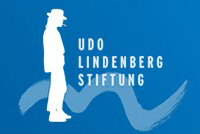Noble Prize
A year after the end of the Second World War, Hermann Hesse is awarded the Nobel Prize for Literature. Yet the then 69-year-old, who had always hated being the subject of hype and hullabaloo, stays away from the presentation ceremony on November 10, 1946, the birthday of Alfred Nobel. He simply has a two-page statement read out for him in Stockholm, apologizing for his absence on the grounds of delicate health and the destruction of his life's work in Germany in the years since 1933. At the time of the presentation ceremony, Hesse had indeed just begun a fourth-month health cure at a spa in western Switzerland. Yet he nonetheless felt akin to the spirit of the Nobel Foundation - that of serving not war and annihilation but peace and reconciliation. Hesse acknowledges that the prize awarded to him is presented in "recognition of the German language and the contribution Germany has made to culture." In a letter to his wife Ninon, however, Hesse expresses himself less choicely: "To hell with this damn business," he writes, fearing the expected flood of telegrams and letters. And to painter friend Gunter Böhmer he writes: "The whole carry-on is taking place today in Stockholm, first the Nobel ceremony with a big gala, then a banquet, with some wise words by me being read out." The Nobel Prize award was something Hesse also owed to his friend Thomas Mann. As 1929 Prize Winner, Mann had spent several years lobbying the Academy on behalf of his fellow countryman. Quite indisputably, there was also a political agenda to the award of the prize so soon after the war. Following the collapse of National Socialism, under which Hesse had been seen as a traitor to the "Fatherland," and during which few of his books were allowed to appear, the world was to be shown an untarnished and morally credible representative of German thinking and culture.


